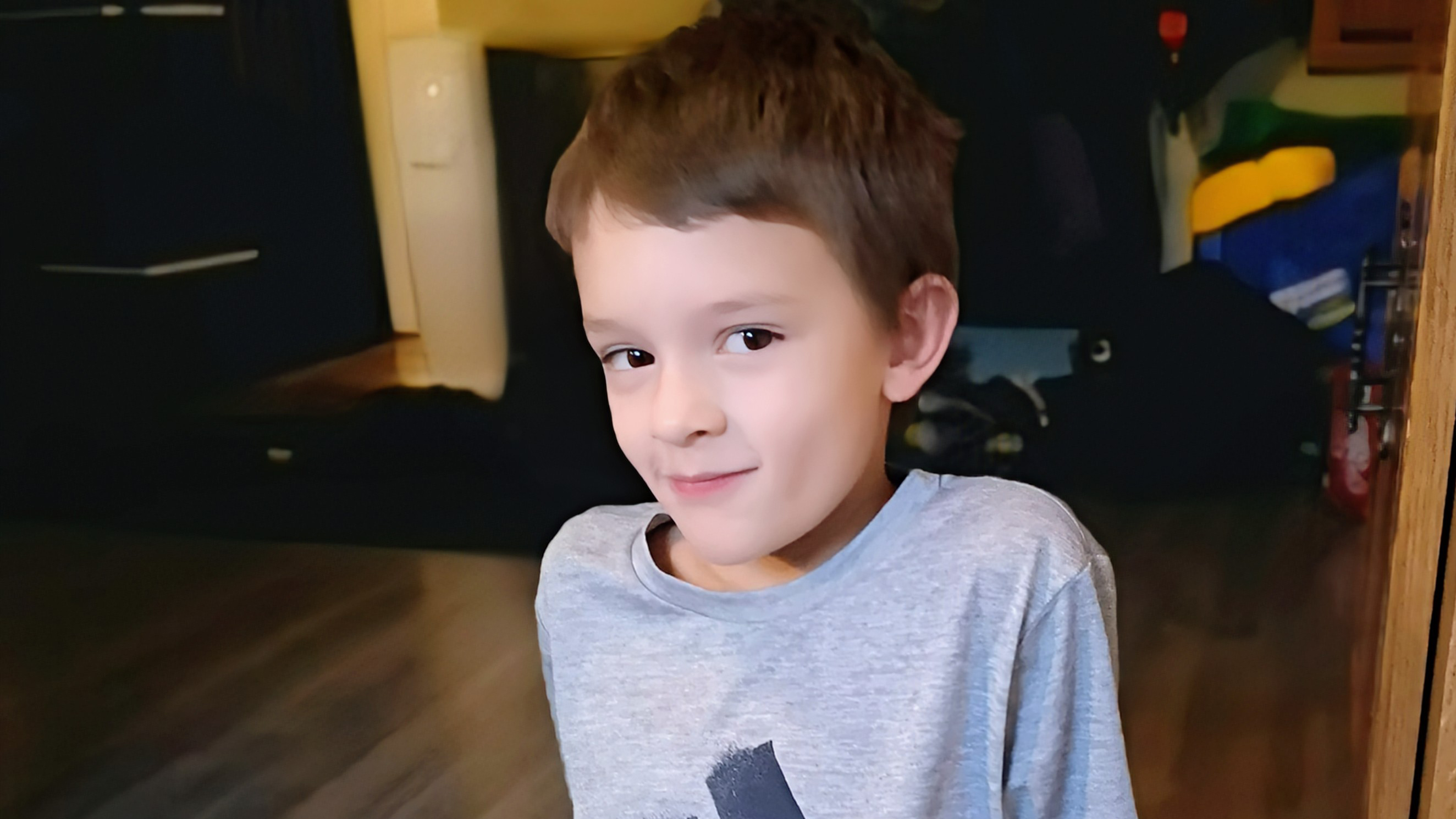ISTAR helps nine-year-old find his voice
Shirley Wilfong-Pritchard - 6 March 2024

Nine-year-old ISTAR client Linkin. Photo supplied.
Linkin is a nine-year-old boy in Grade 3 who is confident, outgoing and happy to have conversations with family and friends. But it wasn’t always this way.
When he was four, Linkin’s parents — Nathan Astrope and Amanda Poels — noticed that he had a stutter. While living with his mom in British Columbia, he attended a speech-language program through B.C.’s Interior Health where he saw some improvement, but soon aged out when he began school. Without a consistent, specially trained therapist in stuttering at Linkin’s school, by age eight his speech started to decline.
“As his speech declined, so did his relationships,” says Astrope, who lives in Calgary. “He didn’t speak very much. It was sometimes hard for us to understand him.”
“We were concerned that if he didn’t get a much better grip on his speech, at least to a point where it’s not as noticeable, then kids might make fun of him for stuttering,” adds Poels. “As kids get older, they start to notice these things.”
Luckily, Linkin’s dad discovered the Institute for Stuttering Treatment and Research (ISTAR) at the University of Alberta when his fiance happened to stumble upon it while at the university for another matter. With the encouragement of Linkin’s speech therapist at school, who recognized the program and thought it would be perfect for him, Astrope applied to the ISTAR Client Assistance Program (ICAP) Fund to start the enrolment process.
The ICAP Fund helps many families. Individuals can make donations or volunteer for activities that raise money for the fund. Foundations also provide grants and gifts directed specifically for use in the fund.
Thanks to the Elks of Canada, who are generous donors to the ICAP Fund, this two-household family — with nine children between them — was able to get Linkin the help he needed in a weekly remote program with therapist Spenser Halfyard. “It has meant the world to us,” says Astrope.
“Zoom has been working well for everyone,” says Poels. “We can stay updated with Linkin’s therapy and he can access it from anywhere.”
As flexible and convenient as remote therapy has been, there were some challenges along the way. “Most of the challenges have to do with a young boy having a hard time sitting still,” says Astrope, “or simply wanting to do something other than meet on a computer for speech lessons.”
“Imagine trying to navigate the already challenging world of communication, and then add on the frustration of not being able to get your words out,” says Halfyard. “Speech sessions for stuttering can be tough for anyone - there are very specific techniques, facing fears and pushing through discomfort.”
“I’m very proud of him,” says Poels. “It’s not easy to commit to weekly speech therapy sessions.”
It’s easier for Linkin now, after working with ISTAR for about seven months.
“I was scared to meet Spenser at first but I came out of my shell,” says Linkin.
“He’s grown to like Spenser quite a bit and they have a good working relationship,” adds Poels.
“She’s very mindful of the circumstances of our different households, and she’s very understanding of his interests — such as Minecraft — and uses that in her speech therapy sessions so it’s been more enjoyable for him.”
Linkin has made a lot of progress since starting the ISTAR program.
“I’m pretty good with my speech,” says Linkin. “It’s much smoother and now I can speak faster.”
“Sometimes when he is speaking to me, I just smile at him because I remember how much of a challenge it used to be for him to get any words out at all,” says Astrope. “It’s incredible to see how far he has come in such a short time.”
“Linkin's willingness to try new techniques, persistence in practicing, and overall work ethic continuously inspire me as his clinician,” adds Halfyard.
“Since Linkin has been doing sessions with Spenser, he has become a very confident boy, happy to have conversations, and very outgoing,” says Astrope. “He has really ‘found’ his voice and is no longer afraid to share his opinions, thoughts or ideas. Playing with his friends and family has also changed drastically since his speech has improved. So, in short, everything, EVERYTHING has changed.”
“Linkin and his whole support system always showed resilience and dedication to his treatment,” says Halfyard. “The real learning doesn't just happen during our sessions, but in the small moments like chatting about how the day was, playing with friends, greeting neighbours and reading bedtime stories. It's continued support and encouragement in these smaller moments that led to bigger progress in Linkin's speech therapy.”
Linkin is looking forward to attending a speech therapy camp in Edmonton for four days over the spring break. “I’m excited to go meet Spenser,” says Linkin. “I am so thankful to be a part of Linkin's journey,” adds Halfyard, “and so excited to meet him in person!"